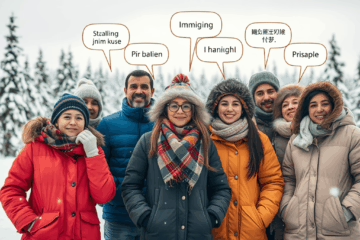Navigating the complex landscape of refugee status in Canada can be challenging, particularly for individuals who have initially sought asylum in another country. This article delves into the intricacies of seeking refugee status in Canada, focusing on the Safe Third Country Agreement (STCA), the roles of the Immigration, Refugees and Citizenship Canada (IRCC) and the Immigration and Refugee Board (IRB), and insights from a Vancouver immigration lawyer.
Table of contents
Understanding Refugee Status in Canada
Canada has long been recognized as a welcoming nation for refugees, providing protection to those who meet the criteria under the United Nations Refugee Convention. To be considered a refugee in Canada, individuals must demonstrate a well-founded fear of persecution in their home country based on race, religion, nationality, political opinion, or membership in a particular social group. Once granted refugee status, these individuals are recognized as “protected persons,” allowing them to reside in Canada and eventually apply for permanent residency.
The process of applying for refugee status in Canada involves several steps, starting with an initial claim at the port of entry or an inland office. Applicants are required to provide detailed information about their situation, including evidence to support their fear of persecution. The decision-making process involves a thorough assessment of the claim by the IRB, which evaluates the credibility and validity of the information provided.
For those who have applied for asylum elsewhere, seeking refugee status in Canada can be more complex due to international agreements and Canadian immigration laws. Understanding these nuances is crucial for individuals hoping to find safety and protection in Canada, as their eligibility might be influenced by previous asylum applications in other countries.
Navigating the Safe Third Country Agreement
The Safe Third Country Agreement (STCA) between Canada and the United States plays a significant role in determining the eligibility of refugee claimants who have applied elsewhere before seeking asylum in Canada. Under this agreement, individuals who have already claimed refugee status in the U.S. are generally ineligible to make a claim in Canada, as both countries recognize each other as safe for refugees.
However, there are exceptions to the STCA that allow certain individuals to pursue refugee claims in Canada despite having applied in the United States. These exceptions include claimants with family members in Canada, unaccompanied minors, and those who hold valid Canadian visas. Understanding these exceptions is crucial for applicants, as they can significantly impact the outcome of their refugee claims.
The STCA has been the subject of legal challenges and public debate, with critics arguing that it may not adequately protect refugees’ rights. The agreement’s implications for refugee claimants underscore the importance of seeking informed legal advice and exploring all available options before making a claim in Canada.
Role of IRCC and IRB in Refugee Applications
Immigration, Refugees and Citizenship Canada (IRCC) and the Immigration and Refugee Board (IRB) are the primary bodies responsible for processing refugee applications in Canada. The IRCC manages the initial stages of the application process, including receiving and reviewing claims, while the IRB conducts hearings to make determinations on refugee status.
The IRB plays a critical role in evaluating the merits of each refugee claim, considering both the credibility of the applicant and the conditions in their home country. This independent tribunal ensures that each case is assessed fairly, providing applicants with the opportunity to present their case and any supporting evidence. The IRB’s decisions are based on a thorough examination of each claim, ensuring that those in genuine need of protection are granted refugee status.
For refugees who have applied elsewhere, the IRCC and IRB must also consider the impact of international agreements, such as the STCA, on their eligibility. This requires a nuanced understanding of both domestic and international refugee law, highlighting the importance of legal expertise in navigating the Canadian refugee system.
Insights from a Vancouver Immigration Lawyer
A Vancouver immigration lawyer provides valuable insights into the challenges and opportunities faced by refugees seeking status in Canada after applying elsewhere. With expertise in immigration and refugee law, these legal professionals can offer guidance on navigating the STCA and understanding the roles of the IRCC and IRB in the application process.
According to a Vancouver immigration lawyer, one of the key challenges for refugees is ensuring that their claims meet the eligibility criteria under Canadian law. This often involves gathering comprehensive documentation and presenting a compelling case to the IRB. Legal representation can significantly enhance an applicant’s chances of success, as lawyers can help prepare for hearings and ensure that the claim is presented effectively.
The lawyer also emphasizes the importance of understanding the exceptions to the STCA, as these can provide a pathway for individuals who have previously sought asylum in the United States. By staying informed about changes in immigration policies and legal precedents, refugees and their legal representatives can better navigate the complexities of the Canadian refugee system.
Exploring refugee status in Canada after applying elsewhere involves navigating a multifaceted legal landscape influenced by international agreements and domestic policies. Understanding the intricacies of the Safe Third Country Agreement, the roles of the IRCC and IRB, and seeking specialized legal advice are crucial steps for refugees seeking protection in Canada. As the global refugee crisis continues to evolve, Canada remains committed to upholding its humanitarian responsibilities and providing refuge to those in genuine need.



0 Comments